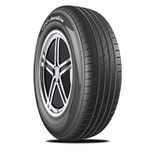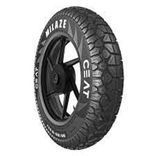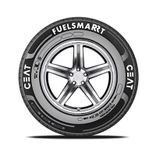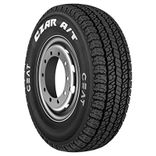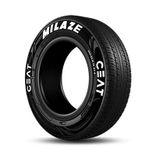Ad
Ad
Clutch Fluid vs. Brake Fluid: Are They the Same?
Brake and clutch fluids are crucial for the performance and safety of your vehicle. This article explains their functions, maintenance tips, and when to know it's time to inspect or replace these fluids.
Ad
Ad

Everyone knows that our vehicle's engine oil is to be changed periodically. However, some other maintenance requirements are less common but are extremely vital. If you want your car to not break down on the highways or in the middle of the city traffic, you need to find out what it needs to function properly and then do what you can to meet those needs. Today we are talking about the two most important fluids, other than fuel and engine oil, that a car owner should be aware of when it comes to maintenance and servicing - brake and clutch fluids.
In this article, we will look at these two crucial fluids, their importance, and are both the same or not. Additionally, we also discuss some common indicators that will let you know that it is time to see a mechanic or refill/replace these fluids. So, let’s dive straight into it.
What is Clutch Fluid?
The clutch fluid is a type of hydraulic fluid mostly made up of glycol ethers and polyglycols along with some additives to enhance its properties such as boiling point, viscosity, and corrosion resistance. The primary purpose of a clutch fluid in a vehicle is to transfer the force applied in the clutch pedal to the clutch mechanism to engage and disengage the clutch inside the engine to shift gears smoothly.

Stored in a clutch master cylinder, the clutch oil functions when you push the clutch pedal, it is sent to the slave cylinder, allowing the car to change gears swiftly. After changing gears, you release the clutch pedal, and the fluid returns to the master cylinder. Now, let's move to the brake fluid.
What is Brake Fluid?
If your brakes are not operating correctly, something to check is the brake fluid. This particular fluid is essential for the proper functioning of your vehicle's braking system. It is also a type of hydraulic fluid that is used to transfer the force and pressure applied to the brake pedal to the brake mechanism in the wheels to reduce the speed and stop the vehicle. When you apply brakes on your vehicle, the fluid stored in the brake master cylinder travels through break lines (pressurised wires connected to the brake calipers or wheel cylinders) and helps to increase the pressure on brake pads that creates friction in the drums or disks to reduce the speed or stop the vehicle.

There are multiple types of brake fluids for different vehicles such as DOT3, DOT4, DOT5, and so on. These types of brake fluids have different boiling points and composition.
Now that you know what these fluids are and what they do, let's discuss their significance.
What is the Importance of Brake and Clutch Fluids?
Brake Fluids
It is an important component of the braking system in a vehicle. Here are some points that emphasize its importance-
- Brake fluids transmit the pressure from the brake pedal to the brake calipers to stop the vehicle.
- These fluids prevent corrosion within the braking system.
- These fluids are designed to withstand high temperatures generated during braking without boiling.
- It also provides lubrication to the moving parts to reduce wear and tear in braking components.
Clutch Fluids
- Clutch fluids create hydraulic pressure in manual transmission vehicles for smooth gear shifts.
- Clutch fluid ensures that the pedal operates correctly. Contaminated or insufficient fluid can cause problems such as difficulty in shifting gears, or a spongy clutch pedal.
- Just like brake fluids, clutch fluids require regular checks, refills, and replacements to ensure optimal performance.
- Such kinds of fluids must be kept clean to avoid hydraulic components like the master and slave cylinders.
Are Break Fluid and Clutch Fluids are Same?
Brake fluids and clutch fluids are essentially the same chemicals. The only thing which differs between these two is their applications on a vehicle. Here are some key points based on their similarities and differences:

Composition
Both fluids are hydraulic fluids, made up of the same ingredients such as glycol and polyglycol. However, fluids like DOT 5 are made up of silicon which offers performance at higher temperatures than DOT 4.
Functionality
Both fluids are used to transmit the power applied to the brake and clutch pedal to their respective mechanisms in the engine and wheels as discussed above.
Performance Requirements
Some vehicles may specify different performance characteristics for brake and clutch fluids due to different operating conditions. For instance, some vehicles may require a higher boiling point for clutch fluid compared to brake fluid.
Contamination and Maintenance
Both fluids can absorb moisture over time, which can degrade their performance. Regular maintenance is essential for both systems to prevent issues such as vapor lock or loss of hydraulic pressure.
Common Indicators Telling You to Check Your Brake and Clutch Fluids
Many people struggle to know when to take their car to the mechanic or when it needs major repairs. Here are a few indicators that your vehicle should be sent to a mechanic or dealership for an inspection. Failure to fix these issues may result in severe damage to the vehicle as well as risking your safety.
Clutch Fluid
If your car is experiencing any of the following problems, it could be a clutch fluid issue:
Resistance
If shifting gears has suddenly become harder than usual, it is possible that your clutch fluid is low or that there is a problem with the flow. This situation needs a quick inspection of the clutch mechanism including the master cylinder and fluid inside it.
Stumbling
Do you find yourself curbing or lurching ahead as the traffic lights change? This could indicate that your clutch fluid level is low.
Sounding
Is your car a little louder than usual? Do you notice that your vehicle is not just noisy, but it also takes more effort for gear shifting? Low clutch fluid or a damaged chamber may cause gear grinding, which, if not rectified, could result in more expensive issues.
Brake Fluid
If your car is experiencing any of the following problems, it could be a brake fluid issue.
ABS Alerts
If you find that your ABS alert lights are turned on, then it is an indication that is telling you that you need to check your brake fluid. Either it can be low or to be changed completely.
Resistance
Do you find it difficult to stop the vehicle when you apply full brakes? This could be because the brake fluid is insufficient and needs to be topped up. Moreover, the brakes are extremely important for any vehicle, you have to check them regularly to ensure proper safety.
Squealing
If your vehicle is making noise every time you apply brakes to reduce speed or make it stop, or generates a high-pitched screech, it can be a strong indication that your brakes need a prompt inspection.
If you notice these signs, you can take immediate action to have the car inspected by a mechanic to ensure that your car's mechanisms, such as the clutch and brakes, are working properly.
CarBike360 Says
In this article, we discussed what are brake and clutch fluids, whether are they the same or not, their applications, and common indicators telling you that they need to be checked immediately. As these fluids are critical components of your vehicle, you need to periodically check their levels to ensure the mechanisms are working smoothly and keeping you and your vehicle safe and secure. Pay attention to the common indicators mentioned above such as difficulty in braking or gear shifting, as neglecting these issues can lead to serious damage. By staying proactive with your car's fluid maintenance, you can help prevent costly repairs and ensure your safety on the road.
More Articles

Meet the Hero Vida V1: Sleek, Smart, and Sustainable
The Hero Vida V1 electric scooter offers sleek design, innovative technology, and impressive performance. Learn about its features, variants, pricing, and competition in India’s growing electric vehicle market.
20-Feb-2025 12:01 PM
Read Full Article
Meet the Hero Vida V1: Sleek, Smart, and Sustainable
The Hero Vida V1 electric scooter offers sleek design, innovative technology, and impressive performance. Learn about its features, variants, pricing, and competition in India’s growing electric vehicle market.
20-Feb-2025 12:01 PM
Read Full Article
Brake Fluid Types Explained: DOT 3, DOT 4, DOT 5 – Which One to Use?
This article explains the different types of brake fluids (DOT 3, DOT 4, DOT 5, DOT 5.1) and which one to use in your vehicle.
13-Feb-2025 01:12 PM
Read Full Article
Brake Fluid Types Explained: DOT 3, DOT 4, DOT 5 – Which One to Use?
This article explains the different types of brake fluids (DOT 3, DOT 4, DOT 5, DOT 5.1) and which one to use in your vehicle.
13-Feb-2025 01:12 PM
Read Full Article
Do Engine Oil Additives Really Improve Your Vehicle's Performance?
This article provides an in-depth overview of engine oil additives, explaining what they are, how they function, and whether they’re worth using in your vehicle.
12-Feb-2025 11:14 AM
Read Full Article
Do Engine Oil Additives Really Improve Your Vehicle's Performance?
This article provides an in-depth overview of engine oil additives, explaining what they are, how they function, and whether they’re worth using in your vehicle.
12-Feb-2025 11:14 AM
Read Full Article
How to Choose the Right Lubricants for Your Car, Bike, and Scooter
Learn how to choose the right lubricants for your vehicle, whether it’s a car, bike, or scooter. This guide covers essential factors such as engine oil, transmission fluids, and maintenance tips to ensure optimal performance and longevity.
12-Feb-2025 05:57 AM
Read Full Article
How to Choose the Right Lubricants for Your Car, Bike, and Scooter
Learn how to choose the right lubricants for your vehicle, whether it’s a car, bike, or scooter. This guide covers essential factors such as engine oil, transmission fluids, and maintenance tips to ensure optimal performance and longevity.
12-Feb-2025 05:57 AM
Read Full Article
Impact of Poor Lubrication on Your Vehicle’s Performance and Longevity
Lubrication is key to your vehicle’s performance and longevity. This article covers the effects of poor lubrication, its causes, and tips to prevent it, ensuring your vehicle runs smoothly and lasts longer.
10-Feb-2025 07:32 AM
Read Full Article
Impact of Poor Lubrication on Your Vehicle’s Performance and Longevity
Lubrication is key to your vehicle’s performance and longevity. This article covers the effects of poor lubrication, its causes, and tips to prevent it, ensuring your vehicle runs smoothly and lasts longer.
10-Feb-2025 07:32 AM
Read Full Article
How to Read Engine Oil Labels: Understanding API, ACEA, and SAE Ratings
Learn how to read your vehicle’s engine oil label and make informed decisions to improve engine health and longevity. This guide explains essential information such as the SAE code, API standards, and manufacturer certifications.
07-Feb-2025 08:17 AM
Read Full Article
How to Read Engine Oil Labels: Understanding API, ACEA, and SAE Ratings
Learn how to read your vehicle’s engine oil label and make informed decisions to improve engine health and longevity. This guide explains essential information such as the SAE code, API standards, and manufacturer certifications.
07-Feb-2025 08:17 AM
Read Full ArticleAd
Ad






